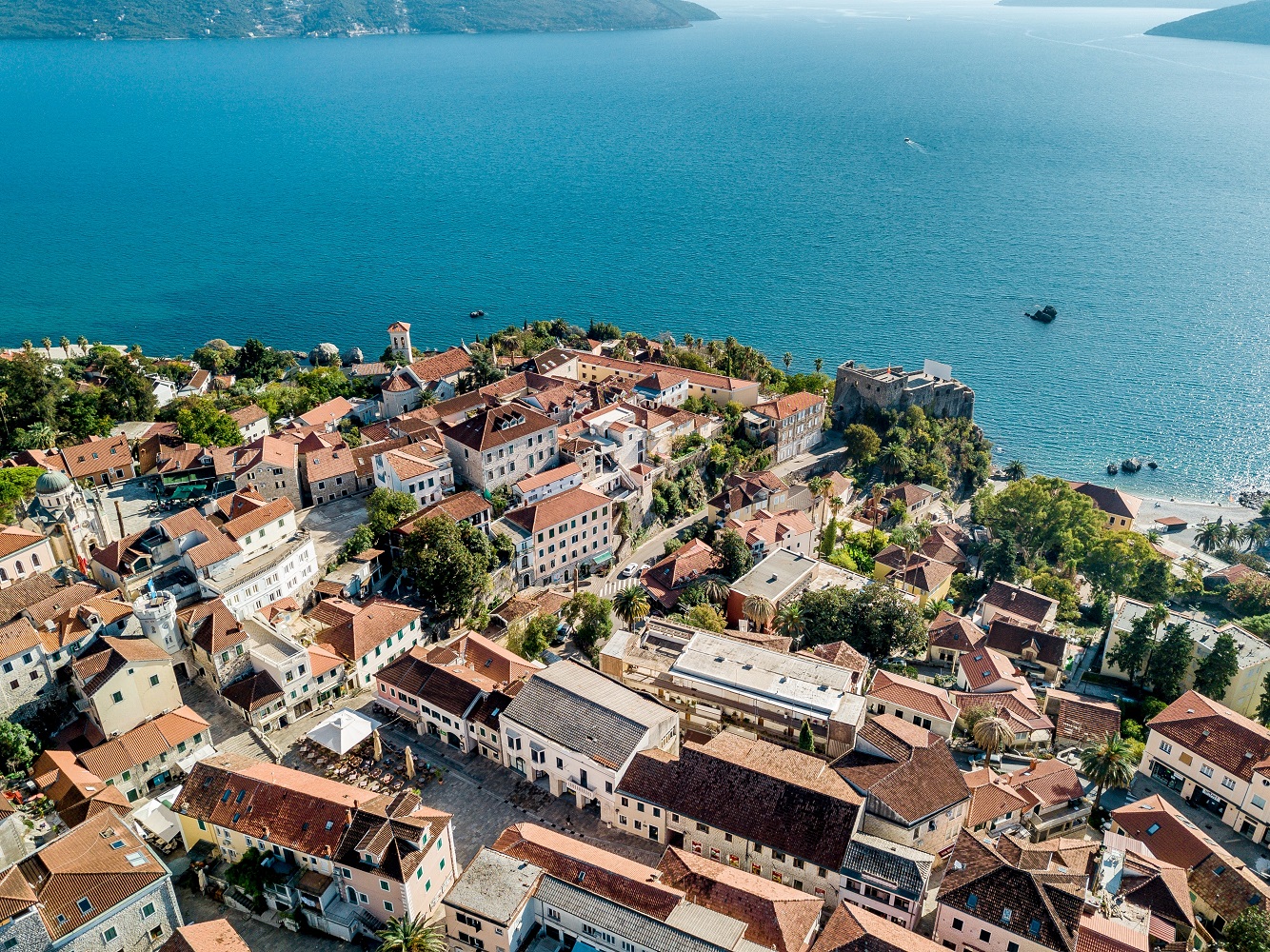 Herceg Novi is administrative, economic and cultural center of the municipality that borders with Croatia Republic, Serbia Republic and with Italy across the sea. It covers an area of 235 km2, there are about 32.000 people and in the city there are 16.000. Citizens are organized into 21 local community, 40 villages of which 12 are near the sea, along the coast and others are in rural area. Only Lustica Peninsula has 32km of coastline.
Herceg Novi is administrative, economic and cultural center of the municipality that borders with Croatia Republic, Serbia Republic and with Italy across the sea. It covers an area of 235 km2, there are about 32.000 people and in the city there are 16.000. Citizens are organized into 21 local community, 40 villages of which 12 are near the sea, along the coast and others are in rural area. Only Lustica Peninsula has 32km of coastline.
Herceg Novi is one of the youngest cities on the Adriatic, founded in 1382., as a commercial town ( salt and silk), although, according to greek sources from the 5th century BC, there was once a settlement of Illyrian tribes. The first town at the entrance of the Boka Bay, which is one of the most beautiful bays in the world, the southernmost fjord in Europe and the deepest in the Mediterranean.
It’s located on the slopes of Orjen mountain ( 1895m) which, in winter, is covered with snow and offers the possibility of practicing winter sports, being at the same time climate and hunting oasis.
Such conditions affect the diversity and richness of the entire horticulture of Herceg Novi Riviera. It’s called sun city because of vegetation, sun and artists. Unlike other Mediterranean cities, which live only in summer, Herceg Novi lives all year round and there is always something going on.
That’s why it has another name- city of festivals and cultural events. Winner of the prestigious golden hearts for hospitality and champion of cultural tourism for South-East Europe. The oldest, Mimosa festival is also winner of the golden heart as the best tourist event. It’s been organized over 40 years and it’s always at the first Saturday in February.
In recent years, 89 religious buildings had been renewed and put in function. Amog the most visited are Monastery Savina, Church of the St. Archangel Mihail and Church of the St. Spasa ( Savior), all placed in town.
There are also cities Dubrovnik and Kotor, 50 km away from Herceg Novi, called cities of ambient architecture and monumental walls, and Herceg Novi city of fortresses and towers because its urban development was based on defensive function of fortresses: Forte Mare ( XV century), Kanli Kula with meaning Blooby tower (XVI cent.) the most beautiful summer stage on the Adriatic, Spanjola ( XVI cent.), at the coastline small fortress Citadela or Macel and fortress that was built on the Mamula island ( 3,5 nautical miles away from the city), with circular shape in accordance with the configuration of the island, which in both wars served as a prison. At the very end of south-western part of the Lustica peninsula, on the foundations of an ancient fortress, there was built a fortress or tower Arza.
In 1850. in place of the western gate of the old city there is clock tower known as the Sahat (Clock) Tower or Tora, heraldic symbol of the city and cultural monument. Cultural heritage of the city lies in existing institutions: archives of the city, public library, JUK „ Herceg Fest“, Gallery „ Josip Bepo Benkovic“, house of Nobel laureate Ivo Andric, Musem of Miroslav Stumberger and many other fondations and endowments.
Today, in Herceg Novi there are 34 categorized hotels (5632 total beds ), 3 hostels (350 total beds) and few motels ( 200 total beds). In the Municipality are active 20 campsites with capacity for almost 620 vehicle. Homemade there are almost 11000 beds.
Institut of Physical Medicine, Rehabilitation and Rheumatology „ Dr. Simo Milosevic“ A.D.Igalo is one of the biggest and most famous instituts for multidiscipline spa treatment in the Balkans.
According to the last informations Municipality of Herceg Novi has 40 NGOs and two fondations. It’s also called sport city because it has 50 sports clubs.
„......and I ask you sun, how can you go down
When this kind of beauty you will not find anywhere....“